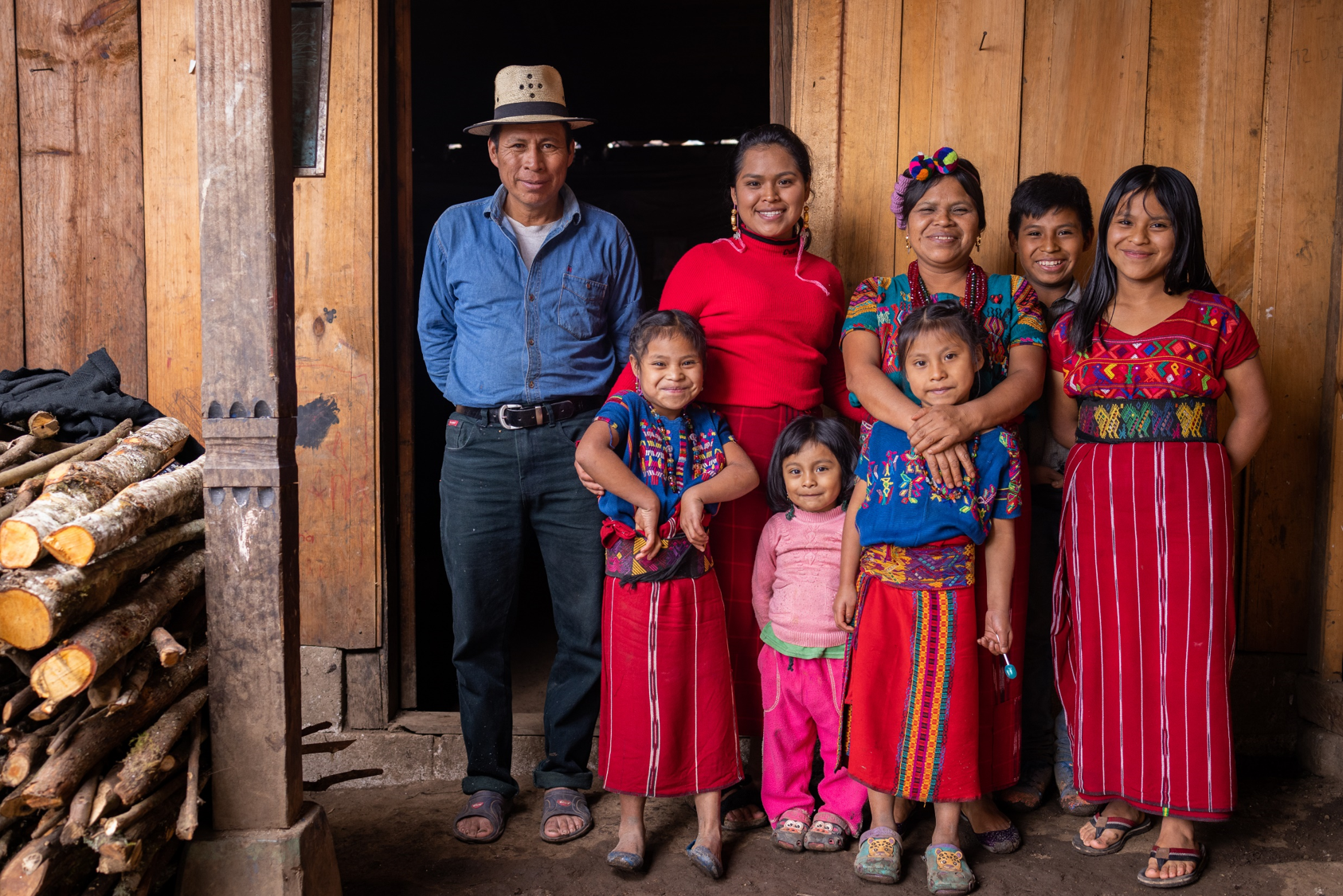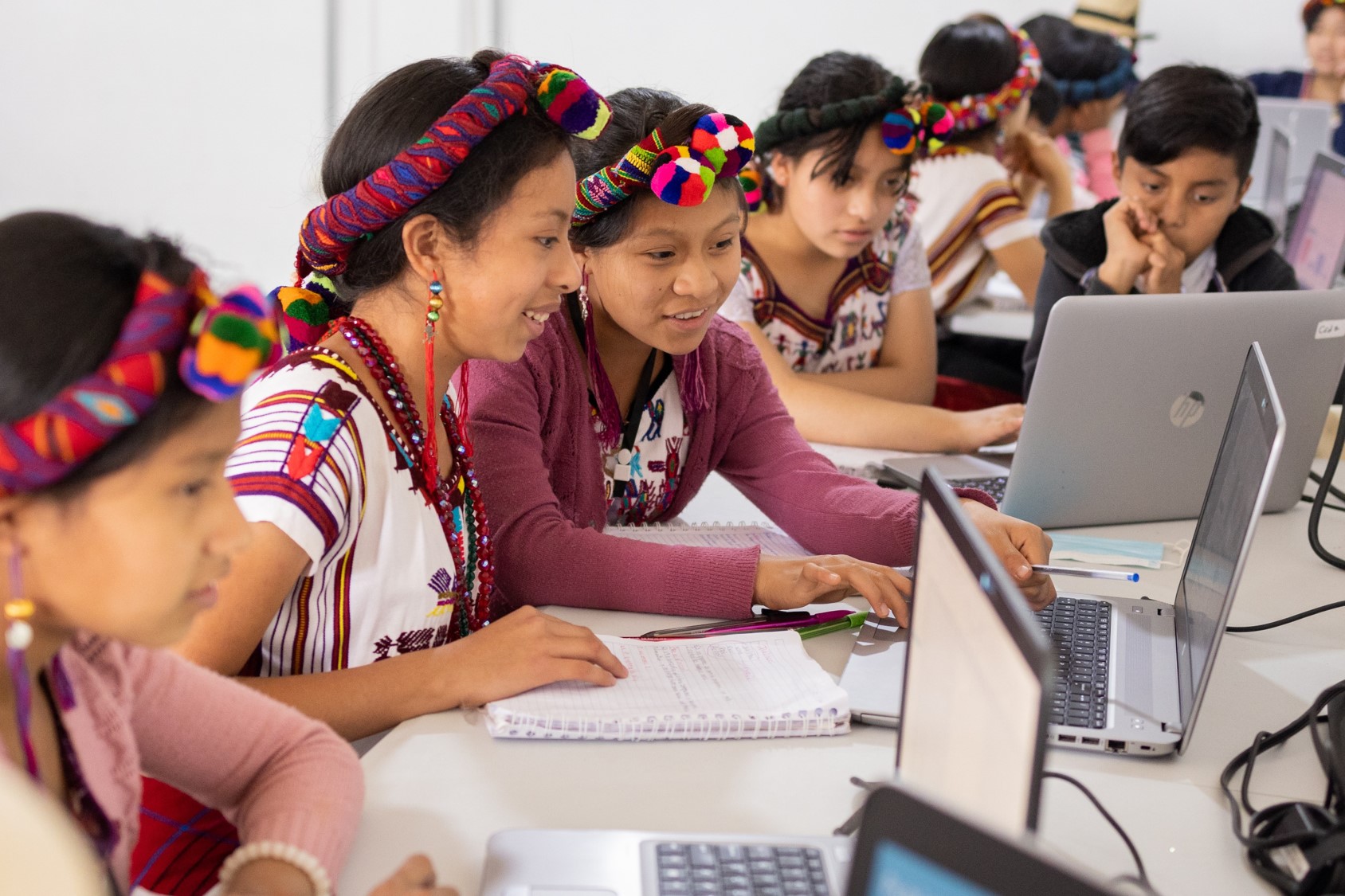
About the Together Women Rise Grants Program
The Together Women Rise Grants Program has two key components that support our overall mission to achieve global gender equality. Featured Grants are largely focused on delivering direct services by funding grassroots organizations that empower and support women and girls in low-income and marginalized communities in the Global South. Our Transformation Partnerships are designed to invest in areas where we can make the biggest impact on achieving global gender equality by addressing the root causes of gender inequality.
Through our Featured Grants Program, we highlight a different organization/project each month, providing a variety of learning materials on the issue and how the grant will be used.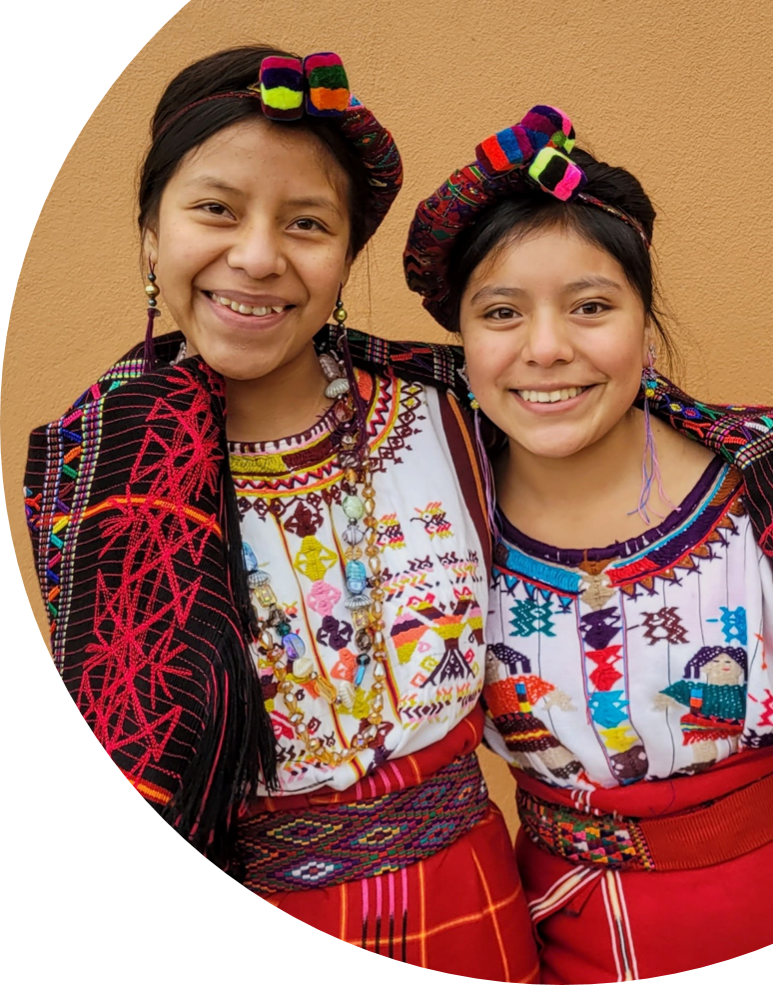
Featured Grants may include:
- Project grants to fund a specific project or a particular deliverable for a specific timeframe; or
- General Operations grants to cover an organization’s day-to-day, ongoing expenses, such as salaries, utilities, office supplies, and more; or
- Capacity-building grants to strengthen an organization’s systems and thereby increase its effectiveness.
The Global Issue
The value of investing in girls’ education
Investing in Girls’ Education Benefits Everyone
Education is a basic human right for all girls, and investing in girls’ education is a smart investment with far-reaching benefits for girls and society at large. Benefits include:
Increased Income and Economic Growth – Because of the large gender gap in education, increasing education for girls has a stronger impact on a country’s educational attainment than simply increasing education for all. This, in turn, increases a country’s labor force participation, total earnings, standard of living, economic growth, and poverty reduction.
Reduced Child Marriage, Early Pregnancy and Fertility – Educating girls delays the age at which girls marry and have children, helping break the cycle of poverty. It also reduces total fertility and population growth, which can be an economic impediment in the Global South.
Improved Health Outcomes – Educating girls improves the health outcomes of girls and their families, especially if they are informed about nutrition, healthcare, and family planning. Because it delays the age at which girls have children, it also leads to healthier pregnancies and lower rates of infant and maternal mortality.
Enhanced Female Empowerment and Civic Engagement – By educating girls, they gain the knowledge, skills, and confidence to make informed decisions about their lives, health, and future. They are better equipped to challenge gender norms and advocate for their rights. They are more likely to participate in civic and political life, leading to more inclusive and representative governance.
| If all girls completed primary education, it is estimated that child marriage would drop by 14 percent, and if all girls completed secondary education, child marriage would drop by 64 percent. |
Gains Have Been Made, But They Have Been Uneven and Incomplete
Impressive gains have been made in girls’ primary and secondary education relative to boys in the Global South. Prior to the pandemic, girls’ enrollment in primary and lower secondary school had almost reached parity with boys’ enrollment. These overall trends, however, hide significant gender gaps in education. These gaps include:
- Access to Education Still Remains a Problem – In many countries, girls still face significant barriers to education due to factors such as poverty, distance to schools, lack of transportation, and cultural norms that prioritize boys’ education over girls’. The gaps are even starker in countries affected by fragility, conflict, and violence where girls are 2.5 times more likely to be out of school than boys.
- Completion Rates Lag Behind – Even when girls enroll in school, completion rates are lower for girls compared to boys. Factors such as early marriage, pregnancy, household responsibilities, and gender-based violence often force girls to drop out of school before completing their education.
- Quality of Education Needs to be Improved – Girls tend to receive a lower quality of education compared to boys due to factors such as gender bias in teaching materials and curriculum, lack of female teachers as role models, and inadequate facilities, particularly regarding sanitation and menstrual hygiene management.
- Translating Education into Paid Employment – Girls tend to have a more difficult time than boys translating their education into paid employment in the formal economy. They tend to be underrepresented in science, technology, engineering, and mathematics (STEM) fields and other fields with better employment opportunities due to gender stereotypes and lack of support.
| In the United States, women make up about 35 percent of the STEM (Science, Technology, Engineering, and Mathematics) workforce – a portion that is gradually increasing. |
About Our Grantee
This month, Together Women Rise is funding Limitless Horizons Ixil with a general operations grant of $50,000.
Limitless Horizons Ixil
Limitless Horizons Ixil (LHI) creates opportunities for the Indigenous youth, women, and families of Chajul, Guatemala to develop the academic and professional skills needed to effect change in their lives and community.
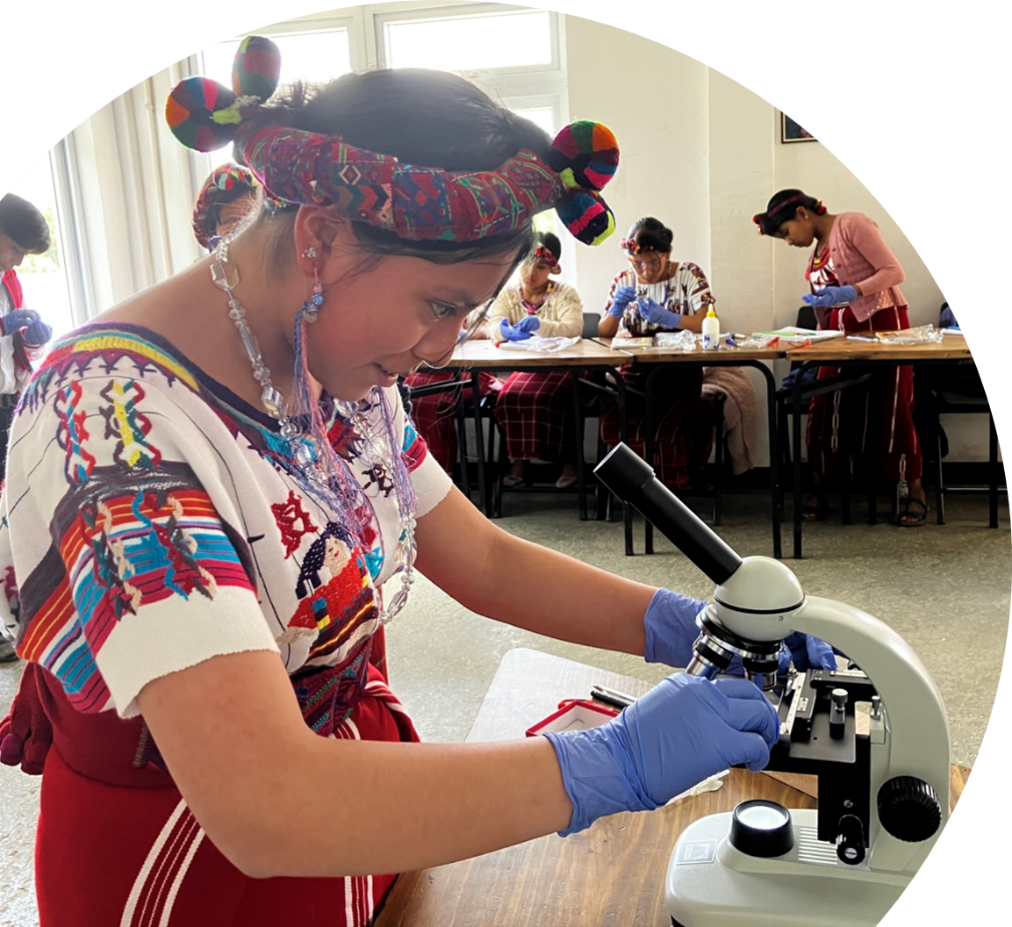 LHI’s work focuses on the Maya Ixil people in the Chajul area, one of the three municipalities in Guatemala referred to as the Ixil Triangle. Chajul was at the center of the Guatemalan Civil War. The violence against the Ixil population has since been tried in court and recognized as genocide. It left Chajul as one of the poorest communities in the country today.
LHI’s work focuses on the Maya Ixil people in the Chajul area, one of the three municipalities in Guatemala referred to as the Ixil Triangle. Chajul was at the center of the Guatemalan Civil War. The violence against the Ixil population has since been tried in court and recognized as genocide. It left Chajul as one of the poorest communities in the country today.
LHI started as a scholarship program but it has grown to meet the educational needs of local youth. It is the only organization of its kind in Chajul, working to help the community arise from its traumatic past by educating future leaders. Programs for youth include a Youth Development Program for middle and high school students, academic and Spanish language skills, financial support so families can afford to keep their children in school, an artisan program, and the community’s only library.
In Chajul, less than 6 percent of adults are formally employed and less than 1 percent of students graduate from a university. LHI graduates are well prepared for college, but many need extra support to move to higher education or into the workforce. LHI’s Emerging Leaders Program deepens the organization’s investment in Youth Development Program alumni, offering support to high school graduates as they move to their next step – whatever that may be – helping to break the cycle of poverty in Chajul.
Maya Ixil women are the majority of LHI’s staff and serve as role models and trusted voices in the community. Many staff members are LHI program graduates and drive all of the organization’s programs in consultation with other community members. Female scholars have graduated in record numbers over the past 19 years, a testament to the work of LHI’s local team, providing academic and social-emotional support and creating a path to a new future for Chajul’s girls. Through the pursuit of education, LHI graduates are confronting the predominant gender roles in their community, demonstrating that they too can aspire to be professionals or entrepreneurs and change the future for themselves, their families, and their community. Of the 151 girls who have enrolled in LHI’s programs: 4 are among the first women in Chajul to complete university, 70 have graduated from high school, and 110 have graduated from middle school. LHI’s scholars grow up to support their community and become female change-makers and community leaders for generations to come.

LHI has deep connections to Together Women Rise. In 2017, LHI received a $50,000 Featured Grant to enable a team of local female staff to educate and empower 110 Indigenous girls and women living in extreme poverty through LHI’s Youth Development Program (YDP). (The YDP is now a part of the Colegio Horizontes (Horizons School). The project provided access to education and academic support, career training, life skills workshops, mentorship, and income-generating opportunities, including a community-led artisan program. By the end of the grant period, LHI had met or exceeded all of its goals and proposed outcomes, directly benefitting 125 women and girls and indirectly benefitting 180 female family members. Katie Morrow, LHI’s Founder and Executive Director, is a member of Together Women Rise and her mother is a chapter leader. Katie spoke at Together Women Rise’s 20th anniversary celebration and LHI has welcomed Together Women Rise members to its campus, most recently in April 2024.
LEARN MORE ABOUT LIMITLESS HORIZONS IXIL
Life Challenges of the Women Served
Chajul, Guatemala
Guatemala has a rich Indigenous history dating back thousands of years. The region was home to several advanced civilizations, including the Maya, who built remarkable cities and made significant advancements in mathematics, astronomy, and art. However, during the past 500 years, the Indigenous peoples of Guatemala have consistently experienced subjugation, discrimination, and marginalization.
Guatemalan society has a patriarchal or “machista” structure, with deep-seated cultural norms and stereotypes that shape gender roles and expectations. As a result, women face systemic discrimination and marginalization in nearly all spheres of life, including education, marriage and childbearing, gender-based violence, economic empowerment, and political representation.
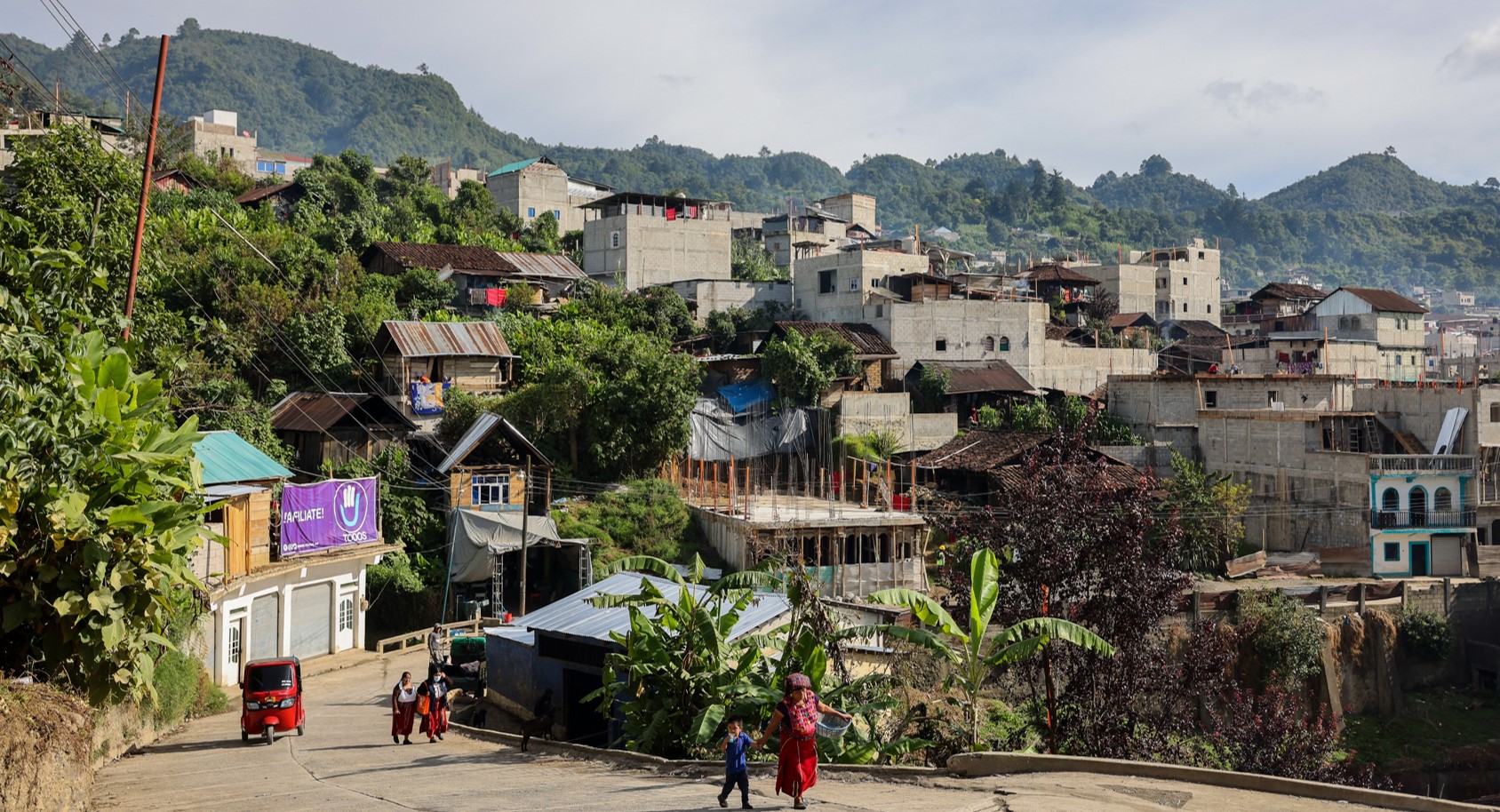
The town of Chajul is a marginalized community populated by the Maya Ixil, of whom 93 percent live in poverty. Most students in Chajul drop out after elementary school, less than a quarter of students graduate middle school, and only 4 percent graduate high school. Girls face additional obstacles and are shut out of educational and professional opportunities, often moving into marriage and motherhood before the age of 20. Up against the intersectionality of gender (female), class (extreme poverty), ethnicity (Maya Ixil), language (Ixil), and geography (rural), Chajul’s girls need a powerful system of support to succeed. LHI forms the foundation of that support.
The devastating violence of the Guatemalan Civil War against the indigenous Ixil population resulted in 70 – 90 percent of Ixil villages being razed. Post-traumatic stress disorder and alcoholism have contributed to elevated rates of violence against women. Residents continue to struggle to make a living. Two out of three people are faced with food insecurity and 93 percent live in poverty. During the war, few had access to education – adults have completed just 3.3 years of formal education on average. Due to unsanitary living conditions, intense smoke inhalation from cooking over open fires, and diets that consist primarily of corn, the leading causes of death are respiratory problems (36 percent), intestinal infections (12 percent) and diabetes (9 percent).
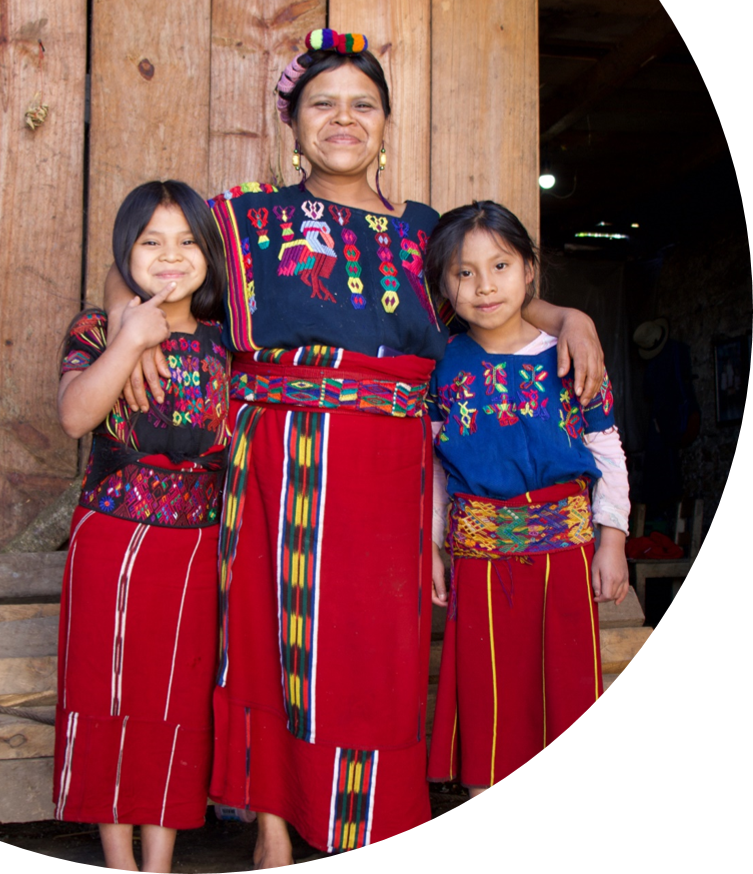 Education – Guatemala has made significant progress in closing the gender gap in primary and secondary education enrollment, but the quality of education and completion rates are still a challenge especially in rural areas and for indigenous populations. Many schools in rural areas with predominantly indigenous students face challenges such as poorly trained teachers, overcrowded classrooms, and limited resources. They often lack basic infrastructure such as electricity, running water, and adequate sanitation facilities. Additionally, curricula and teaching methods are frequently outdated and not culturally relevant for indigenous students. Poor families cannot afford to send their children to school. If they send one child, it will be the eldest son. Many families refuse to support their female children in their education, and opportunities for scholarships and careers beyond school continue to favor boys and men.
Education – Guatemala has made significant progress in closing the gender gap in primary and secondary education enrollment, but the quality of education and completion rates are still a challenge especially in rural areas and for indigenous populations. Many schools in rural areas with predominantly indigenous students face challenges such as poorly trained teachers, overcrowded classrooms, and limited resources. They often lack basic infrastructure such as electricity, running water, and adequate sanitation facilities. Additionally, curricula and teaching methods are frequently outdated and not culturally relevant for indigenous students. Poor families cannot afford to send their children to school. If they send one child, it will be the eldest son. Many families refuse to support their female children in their education, and opportunities for scholarships and careers beyond school continue to favor boys and men.
Marriage and Childbearing – Guatemala has among the highest rates of child marriage and teenage pregnancy in Latin America. In 2018, 30 percent of women in Guatemala ages 20-24 were married or united before their 18th birthday and 6 percent before the age of 15.
Gender-Based Violence – Guatemala has one of the highest rates of femicide in the world, with women often facing violence, including domestic abuse, sexual assault, and harassment. According to the Public Ministry, violence against women is the most commonly reported crime in Guatemala with more than 50,000 complaints filed in 2018.
Economic Empowerment – Women run fewer businesses, own less property, are less likely to work in the formal labor market, and have less access to financing than men.
Despite these odds, girls in Chajul are motivated to overcome these impediments. The top reasons for wanting to study are to have options, to have a better life than their parents, to not suffer like their parents, to speak Spanish, to have a job with a real salary, and to gain knowledge. These girls know what research has proven: when girls go to school, they acquire economic opportunity and learn to make choices that benefit their families and communities.
How the Grant Will be Used
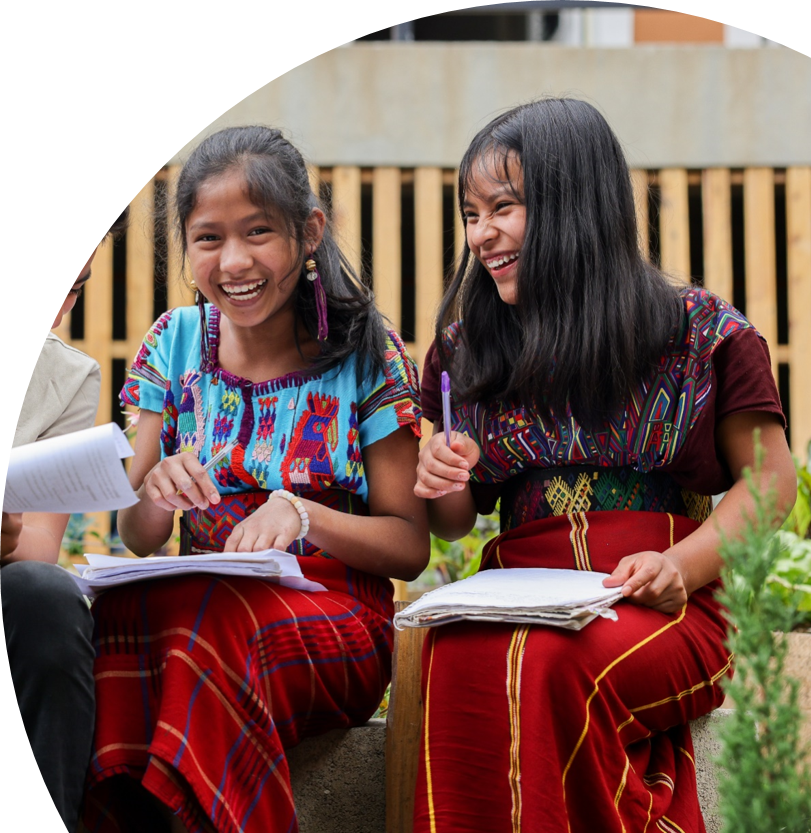 Together Women Rise’s $50,000 Featured Grant supports LHI’s general operations, with a focus on Colegio Horizontes (Horizons School), the organization’s Indigenous girl-centered school – a holistic educational program, including engaging academics, mentoring, nutritious meals, and family services that allows Maya Ixil girls to thrive. Graduates become champions for gender equality and women’s rights, leading their community to a brighter future and their families to better income, health, and wellbeing. The school is building a pipeline of educated professionals in the community now and in the future in the hopes of bringing much-needed talent and economic stimulation to Chajul while preserving the Maya heritage, language, and culture.
Together Women Rise’s $50,000 Featured Grant supports LHI’s general operations, with a focus on Colegio Horizontes (Horizons School), the organization’s Indigenous girl-centered school – a holistic educational program, including engaging academics, mentoring, nutritious meals, and family services that allows Maya Ixil girls to thrive. Graduates become champions for gender equality and women’s rights, leading their community to a brighter future and their families to better income, health, and wellbeing. The school is building a pipeline of educated professionals in the community now and in the future in the hopes of bringing much-needed talent and economic stimulation to Chajul while preserving the Maya heritage, language, and culture.
Since launching the school in January 2022, teachers have witnessed a remarkable change in female student behavior and confidence. Historically, girls in Chajul and in LHI’s programs were hesitant to speak, often covering their mouths with their hands when speaking. Through extensive social-emotional and holistic support programs, female students are not only encouraged, but also empowered to contribute in class. Moreover, from students’ improvements in their critical thinking, leadership, and Spanish language skills, teachers can already see the tremendous impact the holistic education is having on the first two classes of students at Colegio Horizontes. The holistic services will further break down the obstacles faced by female scholars through empowering, girl-focused social-emotional supports and family engagement, allowing them to reach their full potential while challenging entrenched gender norms in the community.
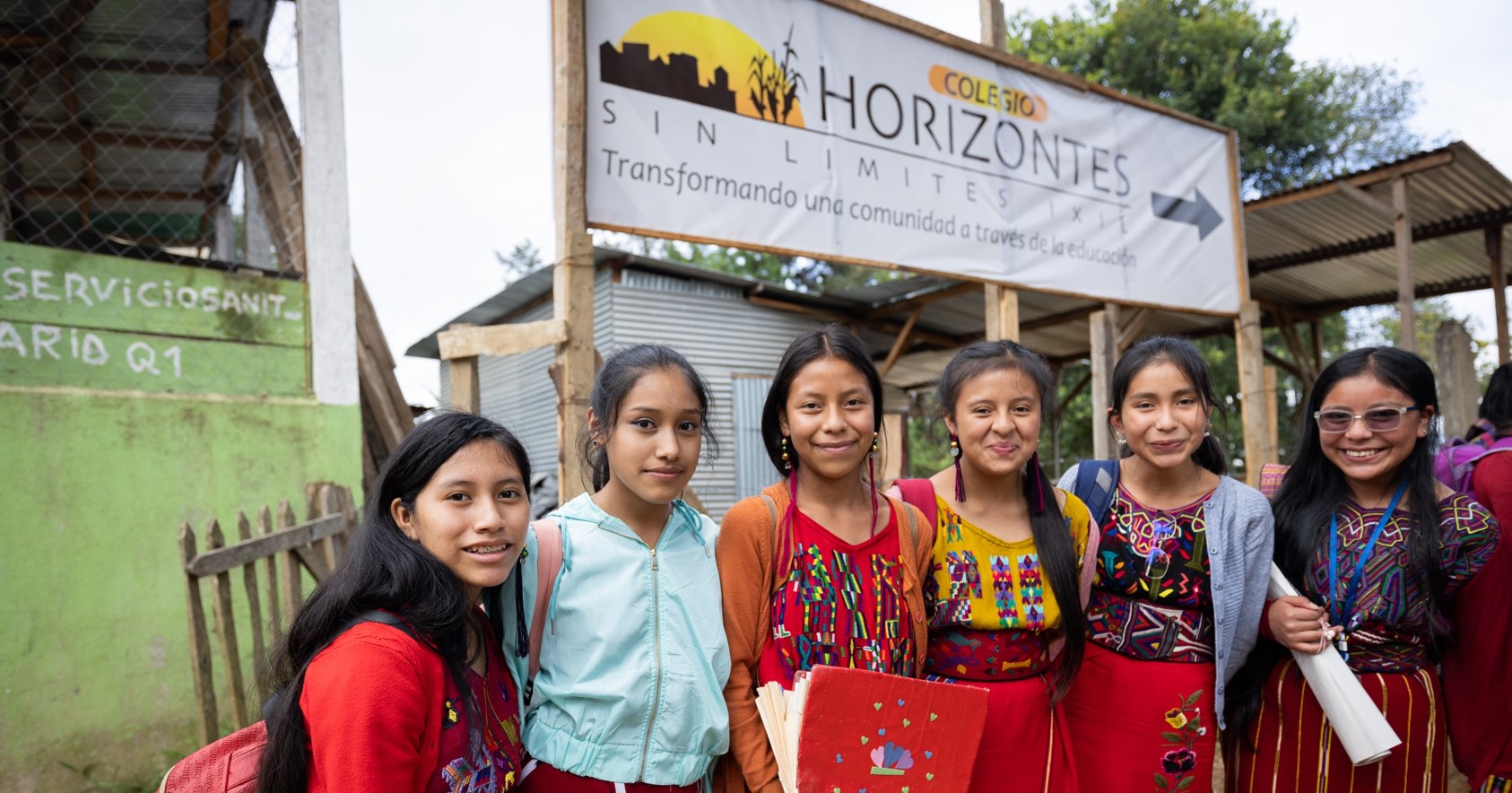
Through family support programs, girls’ parents will develop more positive attitudes towards girls’ education and professional careers, learn to access health, family planning, and other services, and participate in workshops which help them to become more supportive parents for all their children. The boys and young men enrolled in the school, which make up one-third of the student body, learn new gender norms and use their gender privilege to empower women. Well-trained teachers foster gender equality in their classrooms and in their own homes, extending the impact far beyond the school walls. The school community not only empowers the students, but also their siblings and parents, creating a ripple effect throughout the community and empowering a new generation of female community leaders.
Since this is a general operations grant, there is not a specific project budget, but you can learn more about LHI’s budget in its most recent annual report.
Why We Love This Project/Organization
We love the holistic approach employed by LHI that addresses some of the barriers to girls’ academic success, including access to healthy food and support for families, and creates a foundation for systemic change.
Impact Story
Meet Hermelinda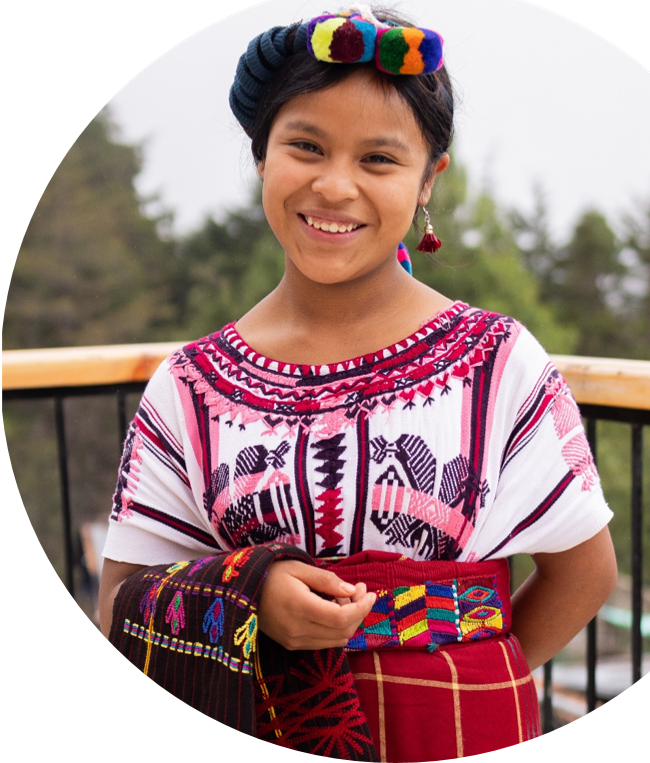
Hermelinda’s parents dreamed of a better life for their eight children. Like all families in Chajul, they faced horrific challenges during Guatemala’s civil war. Juan, her father, only has a primary school education. After his parents were killed when he was young, he was left orphaned, taken by the army and forced to work tirelessly for them until he escaped. He is now a farmer. The war’s trauma widely persists among LHI families even now.
Hermelinda’s mother, Ana, never attended school. She weaves and takes care of the home and their children in a small house with a dirt floor and a wood cooking stove. Ana and Juan always had to weigh the cost-benefit of sending their children to school. Could they afford it? For how long? It was impossible to have all of their children in formal schooling. Hermelinda and her parents dreamed that she could be the first in their family to finish high school.
That dream began to take shape when Hermelinda joined Colegio Horizontes’ first 7th grade class in January 2022. When Hermelinda found out that the school was opening, she couldn’t wait to apply. She was thrilled to join the first Expanding Horizons prep classes, but it was soon discovered that she had remarkably low levels of reading comprehension, writing, and speaking skills, a consequence of nearly two years of the pandemic keeping her out of the classroom.
Since starting at Colegio Horizontes, Hermelinda’s motivation and desire to succeed now shine through. Teachers note that while she was shy and behind when she began, her strong interest in learning motivates her to persevere and master course content even when the material is challenging. Hermelinda says that, in addition to math and language skills, one of the best lessons she is learning is how to create action plans to achieve her goals. Despite her humble upbringing, Hermelinda is not afraid to dream big. She wants to be a doctor, but prior to completing medical school, she dreams of singing professionally. She could also see herself opening a business in Chajul, using what she is learning in entrepreneurship class to bring resources to her community.
Watch a video of Hermelinda and her family.
| “Colegio Horizontes is allowing girls like us, whose families don’t have money, to follow our dreams.” – Hermelinda |
Learn More
Source Materials
SDG Indicator Dashboard | UN Women Data Hub
Achieving Gender Equality in Education: Examining Progress and Constraints
UNICEF – 27 million children out of school in conflict zones
Indigenous people Latin American countries 2021 | Statista
The Word Bank. Data. GDP per capita (current US$)
UN Women Data Hub, SDG Indicator Dashboard
United States Agency for International Development. Women in Guatemala
Ixil Collective. Ixil: A Maya Language, Culture, and Region in Guatemala
National Maternal and Child Health Survey
National Science Foundation STEM Workforce Report
